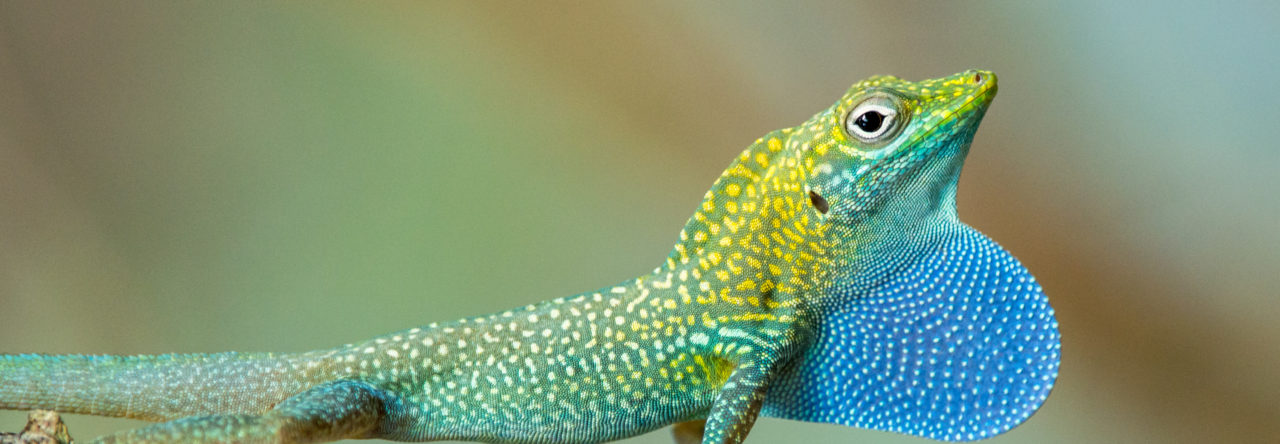Most animal learning studies have been conducted in the lab with the assumption that those findings are representative of behavior in the field. However, assessing behavior in the field increases ecological relevance. In addition, birds and mammals have received much of the attention in cognitive studies. Yet we on Anole Annals know that these lizards can be quite clever.
Levi Storks, a Ph.D. student in Manuel Leal’s lab at Mizzou, set out to address these issues by designing a method for testing behavioral flexibility in brown anoles (Anolis sagrei). Wild lizards in the Bahamas were allowed to feed unrestricted on a maggot placed in the middle of a testing apparatus in order to acclimate lizards to the structure. Storks then used a clear plastic tube to block the direct route to food, requiring lizards to move to either end to gain access. Lizards that successfully completed this task were then tested to see if they could associate unique patterns on the ends of the tube with single openings.
Storks found that a subset of lizards could successfully complete the first detour task, and lizards made fewer errors over the course of solving the detour task. These findings suggest brown anoles can learn and exhibit behavioral flexibility. Stay tuned for more of Levi’s work as he’ll be applying these methods to assess differences in behavioral flexibility between populations that vary in ecology!
- SICB 2018: When the Lights Go Up in the City - January 9, 2018
- SICB 2018: Moms Help Embryos Beat the Heat - January 8, 2018
- Effects of Age- and Sex-specific Density on Behaviour and Survival of the Brown Anole - June 11, 2017



mjohnson216
This is such a great study, Levi! Thanks for sharing it with me as I ran by your poster – my schedule was tight but I didn’t want to miss this. Very cool work – I’m excited by your focus on behavioral flexibility!